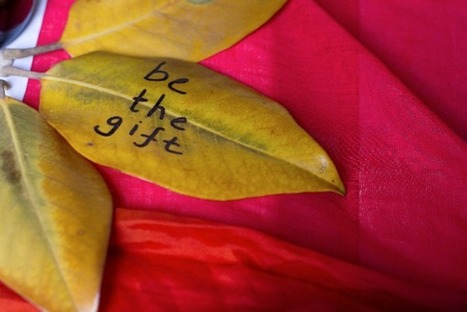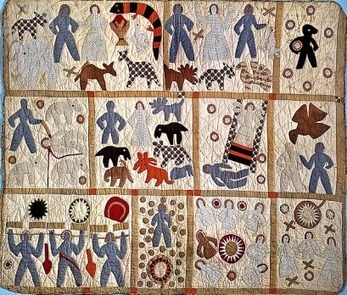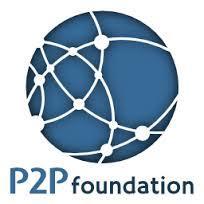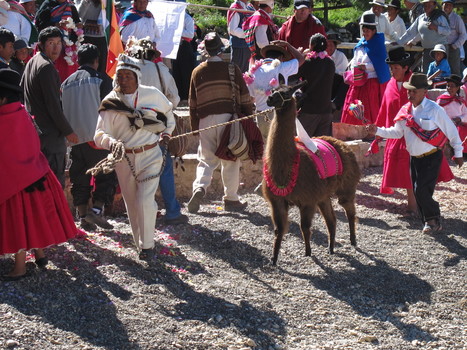 Your new post is loading...
Next year will be the 40 years anniversary of Christopher Alexander‘s seminal work “A Pattern Language”. 20 years ago Nikos A.
RT @mbauwens: RT @timrayner01: The Internet as #gift economy: perspectives from @P2P_Foundation https://t.co/mi4SNZiiyD
After days of fragrant, sun-filled skies, the weather did an about-face and turned stormy on my fourth morning walk through Trastevere in Rome. The black marble square tiles that make up the street paving in this ancient section of the city became slippery with the rain. I wrapped myself in my wool shawl and made a break for the door, trying to avoid slipping and being soaked through and through.
Many workers in app-based businesses are being wrongly classified as independent contractors.
This post was inspired by eGaia, a book by Dr Gary Alexander about the big picture of how we got where we are and where we could be headed. The theme of chapter 8 of eGaia is our inherently coopera...
The idea of bioocultural rights provides a powerful legal framework for reclaiming land, culture, traditional knowledge and self-governance.
Couple weeks back, Sam and I spoke at a local gathering in Oakland. In casual conversation, the convener of our circle, Syra tells us: "I love that so many people are talking about sharing. See, I'm always campaigning for it," handing us a card for local sharing event. "But you know, I tried to get into this sharing conference, and it was 500 bucks! Doesn’t that just feel wrong? Most of us can’t afford that kind of sharing."
Money is, and always has been, a “creature of the state”, and currency has always been a state token. Precious metal coins merely represent one kind of state token, and their origins can be traced to the specific social upheaval that took place at the end of the 7th century B.C. This is an important, fascinating, book that should not be ignored by any monetary theorist.
Charles Eisenstein follows up his work on Sacred Economics with this short essay on the uncharted, and challenging relations than emerge from gift economies.
Maybe this is you: you've been working for a while on your own, making a little bit of money, maybe a lot of money. But something doesn't feel right. When you bill people for your time and expenses, something feels off. You hate that part. There are always the nagging thoughts, “Was it enough? Was it too much?” Maybe you've become friends with your client in the process of working with them and now sending an invoice feels uncomfortable to you. It nags at you. You feel apologetic about it. You t
In his classic essay The Gift: The Form and Reason for Exchange in Archaic Societies, Mauss attacked the long-held notion that among so-called primitive peoples, gift-giving was a clandestine form of rational economic exchange. This was a thunderbolt of an argument, the full ramifications of which are barely absorbed, even in anthropology. Essentially, Mauss was arguing that White people have been assuming, on the basis of their own economic forms of barter and currency-exchange, that this was primary. Instead, Mauss argues that gift-giving was instead the primary form of exchange, of which barter and currency-exchange are secondary distortions which deny the collective good guaranteed by gift economies (cf. general reciprocity).
When I first started developing Babbling Brook, I was inspired by ideas about gift economies. I found lots of people talking about the idea, and I read a lot of the literature on how gift economies work in tribal settings. At the time I couldn’t see how a gift economy could possibly work on a global scale. The problem is that traditional gift economies only work on a small scale. Tribes that have gift economies always exist in bands of less than 150 people. The reason for this is known as the Dunbar limit and it is inherent to the reason that gift economies collapse at larger scales.
We think that the Enspiral Network is pretty great, and that we can learn a whole lot from their P2P governance and property protocols. The following story -penned by Alanna Krause and originally published in managementexchange,com, will give you a good idea of how they keep things fresh and vibrant in the face of change.
|
Michel Bauwens' initial analysis of Kojin Karatani's 'The Structures of World History' and how these insights potentially enrich P2P theory.
Shareable's Cat Johnson interviews David Bollier about the Commons Strategies Group new book anthology Patterns of Commoning.
Beautifully shot trailer and extracts from Robin McKennas upcoming documentary based on The Gift by Lewis Hyde.
Wherever I go and ask people what is missing from their lives, the most common answer (if they are not impoverished or seriously ill) is “community.” What happened to community, and why don’t we have it any more? There are many reasons—the layout of suburbia, the disappearance of public space, the automobile and the television, the high mobility of people and jobs—and, if you trace the “whys” a few levels down, they all implicate the money system.
Greed is a symptom of a malady far transcending economics and no aspect of our society will be untouched in the revolution of love that is underway.
“People centered” means that control of infrastructure, access, distribution, resources, and co-governance are now on the scale of the individual person. When an individual person with this empowerment reaches their individual carrying capacity to operate, they will tend to reach out to others who are operating like them, and a connection-based network will emerge. Economic development here targets individuals operating as self-employed independents who network together. Independents, small businesses, community groups, working together, with government, higher education, and larger business are the new economic driver. The more control people have an on individual scale of infrastructure, access, distribution, resources, and governance, *and* the more connectivity there is between those people, the that more growth happens in “people centered economic development”. When control of infrastructure, access, distribution, resources, and co-governance are now on the scale of the individual person, a new way of coopertive co-managing of existing resources, and surpluses of production tends to emerge. That new way of co-managing is known as “Resource Sharing”."
Technology advances and a consumer-based world have created a 'sharing economy', where it becomes easy to commoditize things that were typically offered as gifts.
An article by Richard Heinberg, "Economic History in 10 Minutes" which I read the other day, inspired me to look a bit more into more elaborate economies than simply gift/tribal based, that might escape people's thoughts as they search for alternatives to the current (failed?) economic system.
Bitcoin was a terrible investment this year, but that hasn't stopped non-profits from asking for them anyway. Wikipedia, Electronic Frontier Foundation, Khan..
“Thus the logic behind money pretty clearly isn’t what the textbook story claims it is. That doesn’t mean that there’s no logic to it at all; what it means is that nobody wants to talk about what it is that money is actually meant to do. Fortunately, we’ve discussed the relevant issues in last week’s post, so I can sum up the matter here in a single sentence: the point of money is that it makes intermediation easy.
The Burning Man festival held every year on the desolate salt flats of Nevada is usually associated with the culturally avant tech crowd of the Bay Area – an image that is accurate as far as it goes. But the event is really much richer in implication than that. Burning Man is a rare space in modern industrial culture that actually invites people to give expression to some of their deepest artistic impulses and cultural fantasies while requiring them to show significant self-responsibility, cooperation and social concern. It is an immersive enactment of a different spirit of living that actually carries over into “real life” after the event itself.
In 2007, ‘economy’ was not really a hot topic and was mostly left aside for those who ‘knew what they were doing’. This surprised me because I feel so passionate about the subject. As if the economy – the way in which we arrange our physical existence together – didn’t have much to do with our daily lives! I had started to understand how much our economy affects us, not just in our day-to-day affairs, but also in how we think and feel, and even how we deal with the way we love each other.
|
 Your new post is loading...
Your new post is loading...

































CONFERENCES GIFT ECONOMIES OPEN CALLS P2P ARCHITECTURE AND URBANISM P2P DEVELOPMENT P2P ECOLOGY P2P EDUCATION P2P GOVERNANCE P2P LOCALIZATION P2P RESEARCH P2P TECHNOLOGY